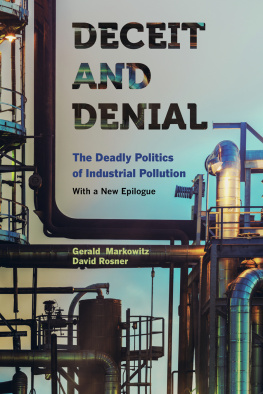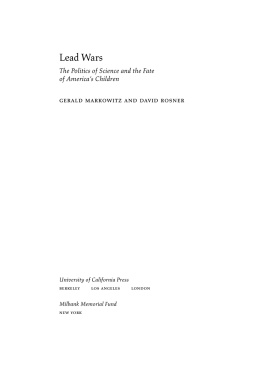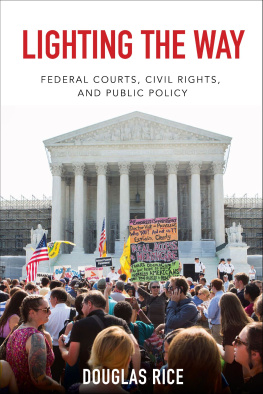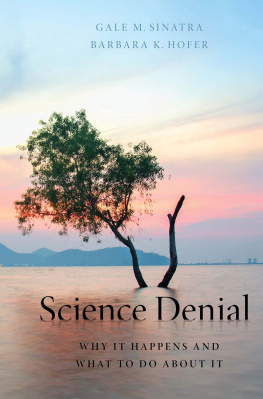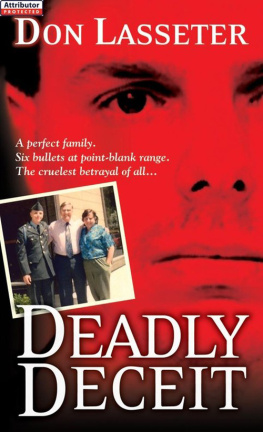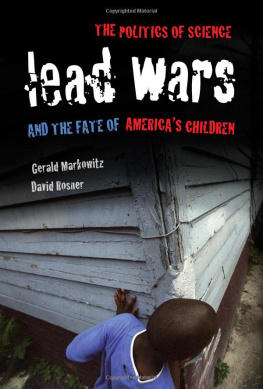
California/Milbank Books on Health and the Public
The Corporate Practice of Medicine: Competition and Innovation in Health Care, by James C. Robinson
Experiencing Politics: A Legislators Stories of Government and Health Care, by John E. McDonough
Public Health Law: Power, Duty, Restraint, by Lawrence O. Gostin (revised and expanded second edition, 2008)
Public Health Law and Ethics: A Reader, edited by Lawrence O. Gostin (revised and updated second edition, 2010)
Big Doctoring in America: Profiles in Primary Care, by Fitzhugh Mullan, M.D.
Deceit and Denial: The Deadly Politics of Industrial Pollution, by Gerald Markowitz and David Rosner
Death Is That Man Taking Names: Intersections of American Medicine, Law, and Culture, by Robert A. Burt
When Walking Fails: Mobility Problems of Adults with Chronic Conditions, by Lisa I. Iezzoni
What Price Better Health? Hazards of the Research Imperative, by Daniel Callahan
Sick to Death and Not Going to Take It Anymore! Reforming Health Care for the Last Years of Life, by Joanne Lynn
The Employee Retirement Income Security Act of 1974: A Political History, by James A. Wooten
Evidence-Based Medicine and the Search for a Science of Clinical Care, by Jeanne Daly
Disease and Democracy: The Industrialized World Faces AIDS, by Peter Baldwin
Medicare Matters: What Geriatric Medicine Can Teach American Health Care, by Christine K. Cassel
Are We Ready? Public Health since 9/11, by David Rosner and Gerald Markowitz
State of Immunity: The Politics of Vaccination in Twentieth-Century America, by James Colgrove
Low Income, Social Growth, and Good Health: A History of Twelve Countries, by James C. Riley
Searching Eyes: Privacy, the State, and Disease Surveillance in America, by Amy L. Fairchild, Ronald Bayer, and James Colgrove
The Health Care Revolution: From Medical Monopoly to Market Competition, by Carl F. Ameringer
Real Collaboration: What It Takes for Global Health to Succeed, by Mark L. Rosenberg, Elisabeth S. Hayes, Margaret H. McIntyre, and Nancy Neill
House on Fire: The Fight to Eradicate Smallpox, by William H. Foege
Inside National Health Reform, by John E. McDonough
Pills, Power, and Policy: The Struggle for Drug Reform in Cold War America and Its Consequences, by Dominique A. Tobbell
Lead Wars: The Politics of Science and the Fate of Americas Children, by Gerald Markowitz and David Rosner
DECEIT AND DENIAL
DECEIT
AND DENIAL
The Deadly Politics of
Industrial Pollution
GERALD MARKOWITZ AND DAVID ROSNER
With a New Epilogue

University of California Press
BERKELEYLOS ANGELESLONDON
The Milbank Memorial Fund
NEW YORK
The Milbank Memorial Fund is an endowed national foundation that engages in nonpartisan analysis, study, research, and communication on significant issues in health policy. In the Funds own publications, in reports or books it publishes with other organizations, and in articles it commissions for publication by other organizations, the Fund endeavors to maintain the highest standards for accuracy and fairness. Statements by individual authors, however, do not necessarily reflect opinions or factual determinations of the Fund.
University of California Press
Berkeley and Los Angeles, California
University of California Press, Ltd.
London, England
First paperback printing 2003
2002, 2013 by The Regents of the University of California
ISBN: 978-0-520-27582-9
eISBN : 9780520954960
Original Library of Congress Cataloging-in-Publication Data
Markowitz, Gerald E.
Deceit and denial : the deadly politics of industrial pollution / David Rosner.
p. cm.
Includes bibliographical references and index.
ISBN 978-0-520-24063-6 (pbk : alk. paper).
1. Environmental health. 2. Environmental healthSocial aspects. 3. Factory and trade wasteEnvironmental aspects 4. PollutionHealth aspects. I. Rosner, David, 1947 II. Title.
RA566 .M265 2002
615.902dc212001058515
Manufactured in the United States of America
20 19 18 17 16 15 14 13
10 9 8 7 6 5 4 3 2 1
In keeping with a commitment to support environmentally responsible and sustainable printing practices, UC Press has printed this book on Rolland Enviro100, a 100% post-consumer fiber paper that is FSC certified, deinked, processed chlorine-free, and manufactured with renewable biogas energy. It is acid-free and EcoLogo certified.
For Andrea and Kathy
C ONTENTS
F OREWORD
The Milbank Memorial Fund is an endowed national foundation that engages in nonpartisan analysis, study, research, and communication on significant issues in health policy. The Fund makes available the results of its work in meetings with decision makers, reports, articles, and books.
This is the sixth of the California/Milbank Books on Health and the Public. The publishing partnership between the Fund and the Press seeks to encourage the synthesis and communication of findings from research that could contribute to more effective health policy.
Gerald Markowitz and David Rosner demonstrate the significance for policy of the methods and findings of historical scholarship. On the basis of research that has been reviewed by experts in history, biomedical science, and policy, they describe decisions by executives of corporations that produce lead products and plastics to withhold information about the health hazards of their products and production processes from their employees and regulators. These decisions contributed to the severe illness and death of many employees of these corporations as well as of persons who lived in the wrong place at the wrong time.
The authors findings are both dismaying and encouraging. On the one hand, executives of major corporations systematically compromised the health of many people. On the other hand, the independence of the American judiciary and the attentiveness of many legislators to the concerns of their constituents brought dangerous situations and their consequences to public attention. This attention yielded compensation for victims and their families and new policy to prevent health hazards in workplaces and communities.
Daniel M. Fox, President
Samuel L. Milbank, Chairman
Millbank Memorial Fund
P REFACE
A number of years ago, just after we had completed Deadly Dust, our book on the history of an occupational lung disease called silicosis, we had the opportunity to visit one of the communities that had been devastated by this affliction. Picher, Oklahoma is a tiny town that once was the center of a huge lead-mining belt. Including parts of Oklahoma, Missouri, and Kansas, it was the biggest lead-producing area in the world from 1900 to1935. The Tri-State region intensely concerned government, the public health community, and a range of industrial hygienists, occupational physicians, and even the general public. The whole country learned of the Street of Walking Death, the phrase used to describe the main street of one of the mining villages that dotted this 2,000-square-mile area. Thousands of miners were said to have been killed or seriously injured by silicosis, a disease produced by the inhalation of fine silica dust created while pulverizing rock or by shooting sand at metallic objects in a variety of trades from foundry work to building construction.
Next page
